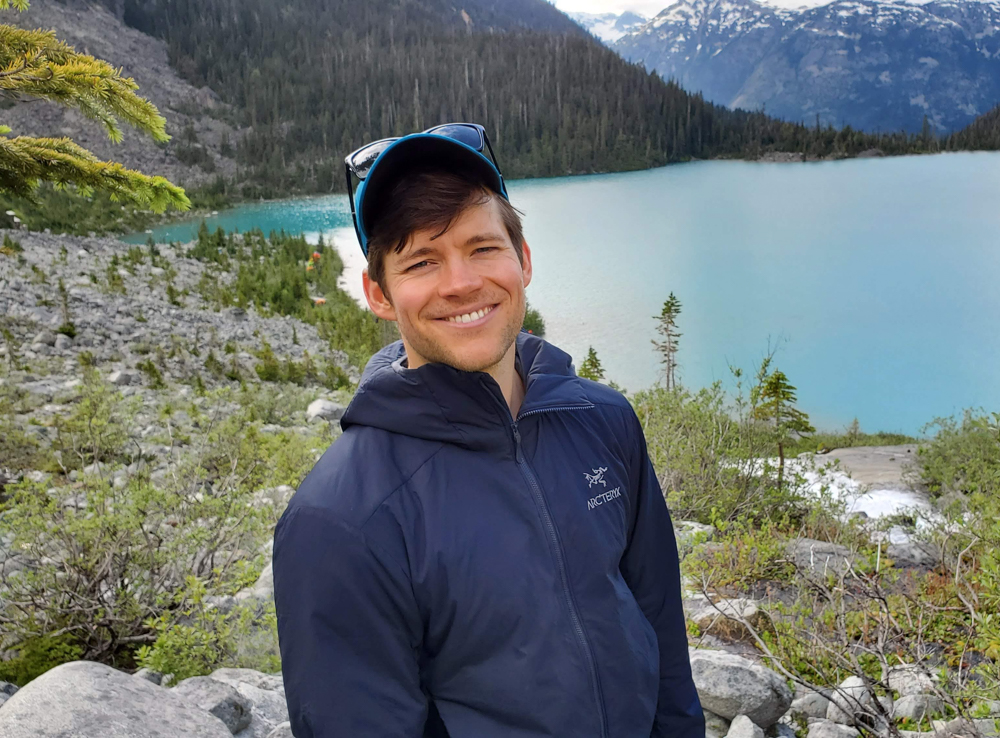From video game designer to speech-language pathology student
Jon Pullin - 14 May 2024

SLP student Brett Nisbet. Photo supplied.
Brett Nisbet, a second-year MSc student in the University of Alberta Faculty of Rehabilitation Medicine’s speech-language pathology program, didn't always know he wanted to be an SLP.
His career trajectory certainly wasn’t traditional — he previously worked as a video game-level designer for a world-renowned local video game developer.
“Working as a game designer was a dream of mine since I was 13,” says Nisbet. “I worked really hard to get that position and it was an amazing experience. But after a while, I realized I wanted to work more directly with people and help individuals one-on-one.”
Nisbet’s path took a turn when he had the opportunity to shadow a speech-language pathologist at the Institute for Stuttering Treatment and Research at the University of Alberta.
“At ISTAR, I volunteered with adult speech clients. Some were beginning their intensive program with varying levels of dysfluency, while others were finishing the program or were returning for a refresher,” he says. “The amount of progress these clients had made blew me away. It was the coolest thing I had seen in my life.”
“That experience was one of the key inspirations driving me to return to school to become an SLP.”
Before applying to the program, Nisbet gained valuable research and volunteer experience.
He served as a research assistant and a supervisor during his first master's degree in digital humanities. He later volunteered with organizations that help with speech and language training such as Khan Communication Services' Chatter program, ISTAR, the U of A English Language School and ASSIST Community Services.
Throughout his career transition and the challenges of graduate school, Nisbet found the Department of Communication Sciences and Disorders to be warm and supportive.
“The application process is well laid out. I knew exactly what I had to do.”
“Once I got into the program, the department was incredibly supportive. They make sure our mental health is taken care of and that we’re learning everything we need to. We’re very well supported.”
“I’ve had so many wonderful experiences with my cohort as well,” he says. “My classmates have all been kind, thoughtful and inviting. I’m humbled to be a part of such an intelligent and capable cohort.”
His favourite part of the program has been the many opportunities to practice his new skills through labs, clinics, projects and work placements.
“One of my fondest memories is volunteering for Alberta Aphasia Camp at the start of my second year. Planning activities and getting to work with the campers was an absolute joy. It helped reinforce my desire to work with adults with aphasia in the future.”
Nisbet feels a deep connection to his hometown Edmonton, especially the vast expanse of the river valley trails and park system.
“I’m a heavy user of the river valley trails and park system for running, biking and cross-country skiing. It’s wonderful to have immediate access to an extensive park system,” he says.“I’d love to find a job here after graduation. My family and friends are here, but I’m open to being flexible, so we’ll see what the future holds.”
To prospective SLP students, Nisbet offers encouraging words.
“Give it a shot! It has been such a rewarding program for so many reasons: the classes, the placements, the profession, the department and the cohort.”
“If you’re curious, try volunteering for some local organizations to get a better understanding of the different roles that SLPs can play. This profession is so diverse that you’re bound to find something that grabs your interest.”